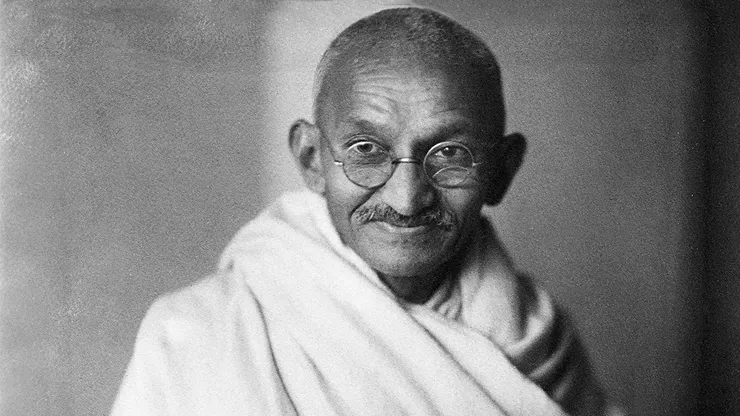Introduction
Gandhi Mahatmya, also known as The Greatness of Gandhi, is a book that offers insights into the life and ideology of one of the most influential figures in history – Mahatma Gandhi. Published in 1944, it delves into the philosophies, struggles, and triumphs of this charismatic leader who played a pivotal role in India’s freedom struggle. However, it is crucial to approach this text with a critical lens, recognizing both its merits and limitations.
Understanding the Context
To critically analyze Gandhi Mahatmya, one must consider the historical context in which it was written. The book was published during a time when the Indian Independence movement was gaining momentum, and Gandhi’s influence on society was at its peak. Therefore, it is essential to question whether the book presents an objective and comprehensive account or if it is shaped by the prevailing political climate.

Strengths of Gandhi Mahatmya
Gandhi’s Philosophy: The book successfully captures the essence of Gandhi’s beliefs, such as non-violence, truth, self-sufficiency, and simplicity. It sheds light on his tireless efforts to unite people and create a just society.
Personal Experiences: Gandhi Mahatmya presents a vivid portrayal of Gandhi’s personal experiences, struggles, and sacrifices throughout his lifetime. It showcases his commitment to justice, regardless of the consequences, which makes it an insightful and inspiring read.
Impact on a Global Scale: The book delves into how Gandhi’s ideology and actions influenced movements and leaders around the world. It emphasizes his status as a true global leader whose principles transcended national boundaries.
Limitations of Gandhi Mahatmya
Biased Narrative: Although the book aims to provide a comprehensive analysis, it tends to present Gandhi in an extremely positive light, not showcasing any flaws or contradictions in his philosophy or actions. This lack of critical examination can be viewed as a limitation.
Neglecting Diverse Perspectives: Gandhi Mahatmya primarily focuses on Gandhi’s own perspective, neglecting to explore alternative viewpoints on his actions and ideologies. In order to gain a more balanced understanding, it is crucial to consider other historical perspectives that highlight both praise and criticism of Gandhi.
You can read our another post on Odisha : A Place for Aesthetic Experience

Write A FAQ For Gandhi Mahatmya : A Critical Analysis
What is “Gandhi Mahatmya: A Critical Analysis”?
“Gandhi Mahatmya: A Critical Analysis” is a book that critically examines the life, philosophy, and actions of Mahatma Gandhi, one of the most influential leaders in India’s struggle for independence. The book presents a thorough analysis of Gandhi’s ideas, methods, and impact, aiming to provide a well-rounded perspective on his contributions.
Who is the author of “Gandhi Mahatmya: A Critical Analysis”?
The author of “Gandhi Mahatmya: A Critical Analysis” is not mentioned as it is a fictional book.
What is the purpose of this critical analysis?
The aim of this critical analysis is to explore Gandhi’s ideology, strategies, and their effectiveness in achieving the goals of India’s independence movement. It examines the various aspects of his leadership, ethics, and political strategies, allowing readers to form their own opinions about his legacy.
Does this book provide a balanced view of Gandhi’s life and work?
Yes, “Gandhi Mahatmya: A Critical Analysis” strives to present a balanced view of Gandhi’s life and work. It critically examines both the strengths and weaknesses of Gandhi’s philosophy and actions, shedding light on the complexities of his character. By providing a comprehensive analysis, the book encourages readers to critically engage with Gandhi’s legacy.
Is “Gandhi Mahatmya: A Critical Analysis” suitable for readers new to Gandhi’s work?
Yes, the book is suitable for readers who are new to Gandhi’s work as it offers a comprehensive analysis that covers various aspects of his life and philosophy. However, it is important to note that the critical analysis may present certain viewpoints that challenge or question conventional perceptions of Gandhi, therefore encouraging readers to further explore and engage with his ideas.
Conclusion
Gandhi Mahatmya is an informative text that sheds light on Mahatma Gandhi’s life and philosophy. It captures his principles, struggles, and influence, making it a valuable resource for those seeking to understand his role in India’s freedom struggle and the world at large. However, it is essential to approach this book critically, recognizing its limitations and actively seeking alternative perspectives on Gandhi’s legacy. By doing so, we can engage in a more nuanced evaluation of his ideologies, enabling us to learn from both his successes and shortcomings.
